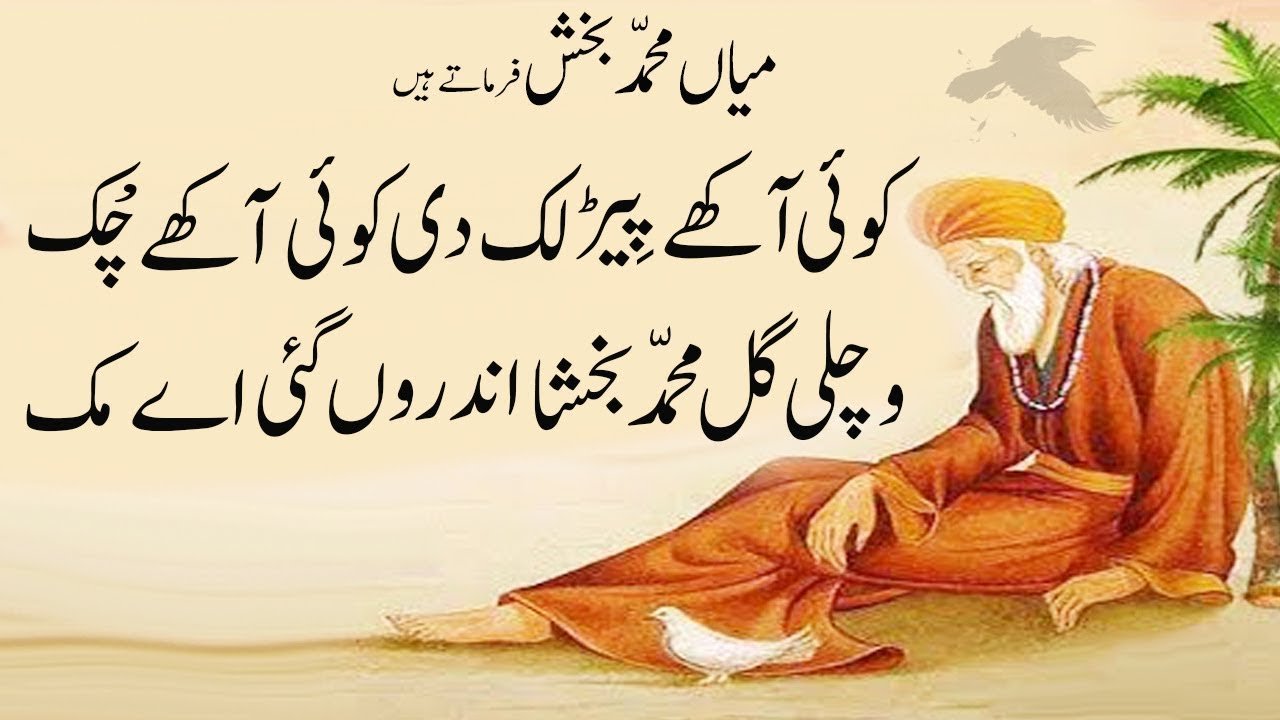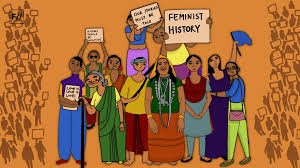Tariq Mahmood Awan
Punjabi poetry of Mian Muhammad Bakhash is unique among all Punjabi Sufi Poets for several reasons. First, he was one of the few Punjabi poets who wrote in the Phari dialect, spoken in some parts of Kashmir and has a distinct vocabulary and grammar from the standard Punjabi. Second, he was a master of various poetic forms, such as Masnavi, Qasida, Ghazal, and Kafi, and he used them to express his mystical vision and teachings in a captivating and eloquent manner. Third, he was a prolific writer who composed his famous Saiful Maluk and several other works, such as Siharfi, Sohni Mahiwal, Mirza Sahiban, Tuhfan-e Miran and Gulzar-e Faqir. Fourth, he was a saint and a scholar with a deep knowledge of Islamic sciences, especially the science of Hadith, and he incorporated many Quranic verses and prophetic traditions in his poetry. Fifth, he was a descendant of a renowned Sufi lineage that traced back to Pīr-e Shāh Ghāzī Qalandar Damriyan Wali Sarkar, who was buried in Khari Sharif.
Please follow the official website of republicpolicy.com
The themes of his poetry are diverse and profound. He wrote about the nature and stages of love, both human and divine, and the trials and tribulations the lovers face on their journey to the Beloved. He wrote about the moral and spiritual values one should cultivate to attain closeness to God, such as sincerity, humility, patience, gratitude, generosity, compassion, and forgiveness. He wrote about the metaphysical realities of the soul, the heart, the intellect, the nafs (ego), the angels, the jinn, the prophets, the saints, and the hereafter. He wrote about his time’s social and political issues, such as oppression, injustice, corruption, poverty, ignorance, and sectarianism. He wrote about the beauty and wonders of God’s creation, especially mountains, rivers, lakes, forests, flowers, birds, and animals.
He wrote about the legends and folklore of his region, such as Saiful Maluk (the story of a prince who falls in love with a fairy princess), Sohni Mahiwal (the story of a potter’s daughter who drowns while trying to meet her lover), Mirza Sahiban (the story of two star-crossed lovers who the bride’s brothers kill), Tuhfan-e Miran (the story of a king who God tests with various calamities), and Gulzar-e Faqir (the story of a dervish who travels around the world in search of wisdom).
Please subscribe the magazines of republicpolicy.com
The literary merits and diction of his poetry are remarkable. He used a rich and varied vocabulary that drew from Arabic, Persian, Urdu, Hindi, Sanskrit, and Phari sources. He employed various rhetorical devices such as metaphors, similes, allegories, symbols, imagery, alliteration, rhyme, repetition, parallelism, antithesis etc., to enhance his poetic expression. He followed strict rules of meter and rhyme scheme in his poetry to create musicality and harmony. He also used humour and irony to convey his messages subtly and witty. His poetry is full of wisdom and insight that appeals to both the mind and the heart.
His poetry influences modern readers in many ways. It inspires them to seek God’s love and guidance in their lives. It educates them about the Islamic teachings and values that can help them achieve peace and happiness in this world and the next. It entertains them with its stories and anecdotes that are full of adventure and romance. It enlightens them with its knowledge and philosophy that can broaden their horizons and perspectives. It connects them with their cultural heritage and identity, enriching their sense of belonging and pride. Lastly, he enjoyed rare freedom of expression and always categorial in his words, phrases and contexts. Therefore, his poetry has a universal appeal with deep rustic, cultural and spiritual manifestations. Even his poetry is a part of Sikh teachings and books. Mian Muhammad Bakhas is remembered as one of the greatest Punjab poets in the literary history of Punjab.
Please subscribe the YouTube channel of republicpolicy.com
















